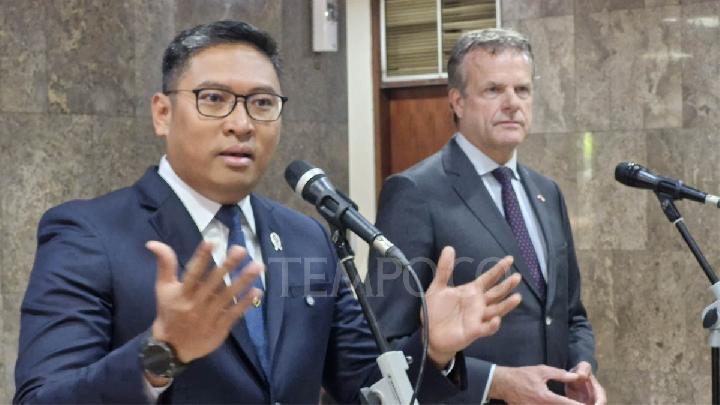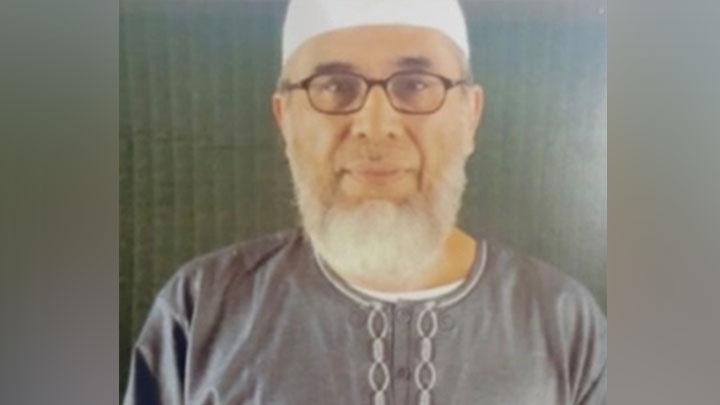TEMPO.CO, Jakarta - The new leadership in Syria has made a surprising move. President Ahmed al-Sharaa has expressed a willingness to explore the possibility of normalizing relations with Israel.
This marks a significant change from Damascus's long-standing position, as reported by Al-Monitor.
This new openness emerges amid major regional developments, including the diminishing influence of Iran, increased pressure on Iran-backed groups like Hezbollah, and the far-reaching impact of the Syrian civil war, which has left the country economically crippled and diplomatically cut off.
Challenges for Post-Assad Syria
Middle East Eye reported that since Assad's downfall, Syria has been subjected to frequent Israeli airstrikes. Israeli Prime Minister Benjamin Netanyahu has also deployed forces to occupy mountainous areas in southwestern Syria, providing Israel with a strategic vantage point near Damascus.
Resolving the Israeli occupation is one of the urgent challenges facing Sharaa. Syria’s economy lies in ruins, with widespread poverty and reconstruction costs estimated at US$400 billion.
U.S. and European sanctions, largely imposed after Assad’s violent crackdown on protests, remain a major barrier, deterring investment from Gulf states and Turkey, both seen as crucial for Syria’s recovery. Some sanctions, including Syria’s designation as a state sponsor of terrorism, have been in place since 1979.
These pressures have driven Sharaa’s recent signals toward normalizing relations with Israel. His government has told visiting U.S. lawmakers that lifting sanctions is a top priority, with normalization seen as a path to attracting Western aid and investment.
In response to U.S. demands, Syria’s leadership has also begun taking steps, including detaining senior members of the Palestinian Islamic Jihad.
Terms of Normalization
Sharaa's openness is not without conditions. He has emphasized that any normalization must safeguard Syria's unity and sovereignty, explicitly rejecting any deals that could lead to division within the country.
He also demands the cessation of Israeli military operations inside Syria and an end to Israeli encroachments, especially near the Golan Heights - a core issue in Syrian-Israeli relations since 1967.
Additionally, there is an expectation that Syria will address remaining issues such as the presence of foreign fighters and chemical weapons, and provide security guarantees to Israel.
Despite these signals, analysts warn that Sharaa's statements are carefully calibrated. His government seems to be testing the waters, seeking to appease both domestic and international audiences without making firm commitments that could trigger strong reactions or threaten Syria's sovereignty.
Damascus's set conditions-such as demands for territorial integrity and the cessation of Israeli airstrikes-pose significant hurdles, and Israeli officials have shown no willingness to meet them.
U.S. Requirements
Last week, Republican Congressman Cory Mills, a close ally of former President Donald Trump, spent 90 minutes in Damascus meeting with Sharaa during a fact-finding mission organized by Syrian-American groups.
Mills later told Bloomberg that their discussions centered on the necessary steps Syria must take to secure sanctions relief.
He outlined several key demands he presented to Sharaa, including the elimination of chemical weapon stockpiles left by the previous Assad regime, cooperation with neighboring countries in counterterrorism efforts, and action against foreign fighters linked to Hayat Tahrir al-Sham (HTS), an Islamic militant group that had overthrown Assad and was once led by Sharaa. Mills also emphasized the need for Syria to provide assurances to Israel.
History of Syrian-Israeli Conflict
The conflict between Syria and Israel dates back to the 1948 Arab-Israeli War, in which Syria participated alongside other Arab states against the newly established State of Israel.
The two countries have clashed on several occasions, notably in the 1967 Six-Day War, during which Israel captured the Golan Heights-an area considered crucial to Syria's national sovereignty and a major sticking point in peace negotiations, according to Jerusalem Post.
Despite ongoing hostilities, the 1990s saw discreet reconciliation efforts, particularly under President Hafez al-Assad. These efforts continued intermittently under Bashar al-Assad, especially following the 2007 Annapolis Conference, but ultimately stalled due to Israel’s unwillingness to fully withdraw from the Golan Heights.
Nir Boms, chairman of the Syrian Research Forum at the Moshe Dayan Center, points out that recent regional shifts have influenced Damascus’s stance. He notes that after the October 7 attack, declining Iranian influence and a weakened Hezbollah have reshaped the strategic environment.
Meanwhile, long-sidelined opposition groups in Syria are beginning to raise their voices and play a role in shaping the emerging dynamics.
Views of the Syrian People
The Syrian public remains deeply divided and skeptical about normalizing relations with Israel, shaped by decades of conflict and the ongoing occupation of the Golan Heights.
Sharaa’s openness to normalization is not widely supported, as many Syrians still view Israel as an occupying enemy and see the Golan Heights as a core symbol of national pride.
Years of war and Israeli military actions have fueled deep mistrust, though some now pragmatically recognize that engagement with Israel could aid Syria’s economic recovery and end its diplomatic isolation.
Still, this pragmatism is cautious. Many Syrians demand that any deal must protect Syria’s sovereignty, reclaim the Golan Heights, and halt Israeli military operations on Syrian soil.
Public sentiment is also shaped by the broader Arab world’s position and the ongoing Palestinian issue, which continues to pose a major barrier to widespread acceptance of normalization.
Editor's Choice: No Israeli Envoy to Attend Pope Francis' Funeral
Click here to get the latest news updates from Tempo on Google News































:strip_icc():format(jpeg)/kly-media-production/medias/3977835/original/066021800_1648524608-pexels-ahmed-aqtai-2233416_1_.jpg)
:strip_icc():format(jpeg)/kly-media-production/medias/3449231/original/035609000_1620241432-000_99C2L3.jpg)
:strip_icc():format(jpeg)/kly-media-production/medias/4779768/original/056174500_1711004488-hands-holding-knife-fork-alarm-clock-plate-blue-background.jpg)
:strip_icc():format(jpeg)/kly-media-production/medias/4678420/original/041411600_1701993066-pexels-thirdman-8489077.jpg)
:strip_icc():format(jpeg)/kly-media-production/medias/5134530/original/076641900_1739622826-20250215-Prabowo-AFP_7.jpg)
:strip_icc():format(jpeg)/kly-media-production/medias/3626995/original/056226000_1636431538-252444828_305857281141144_6357930935168472204_n.jpg)
:strip_icc():format(jpeg)/kly-media-production/medias/3508689/original/070798000_1626139545-20210713-Elon-Musk-SolarCity-5.jpg)
:strip_icc():format(jpeg)/kly-media-production/medias/1619105/original/061499300_1496997418-ramadan-main.jpg)
:strip_icc():format(jpeg)/kly-media-production/medias/4769102/original/014075000_1710171937-20240311-Taraweh_Pertama_di_Istiqlal-ANG_1.jpg)
:strip_icc():format(jpeg)/kly-media-production/medias/5106410/original/089112900_1737608852-Buya_Yahya.jpg)
:strip_icc():format(jpeg):watermark(kly-media-production/assets/images/watermarks/liputan6/watermark-color-landscape-new.png,1100,20,0)/kly-media-production/medias/5140628/original/019242500_1740225866-Persita_Tangerang_vs_Borneo_FC-35.jpg)
:strip_icc():format(jpeg)/kly-media-production/medias/4878826/original/064720000_1719661833-WhatsApp_Image_2024-06-28_at_23.09.07.jpeg)
:strip_icc():format(jpeg)/kly-media-production/medias/3902213/original/084057500_1642045386-pexels-ralph-w-lambrecht-1446076__1_.jpg)
:strip_icc():format(jpeg)/kly-media-production/medias/5141412/original/005545700_1740364919-Snapinsta.app_481203089_18446336839077229_3957692586101845976_n_1080.jpg)
:strip_icc():format(jpeg)/kly-media-production/medias/771429/original/006248600_1416892825-m2.jpg)
:strip_icc():format(jpeg)/kly-media-production/medias/2265569/original/050855900_1530514161-20180702-Harga-Pertamax-Naik-di-Semua-Daerah--TALLO-4.jpg)
:strip_icc():format(jpeg)/kly-media-production/medias/2240997/original/070157500_1528277766-arches-architecture-building-460680.jpg)
:strip_icc():format(jpeg)/kly-media-production/medias/4787912/original/016408900_1711630423-20240328-Penukaran_Uang-AFP_6.jpg)
:strip_icc():format(jpeg)/kly-media-production/medias/5139103/original/083951400_1740056485-Screenshot_20250220_192744_Instagram.jpg)
:strip_icc():format(jpeg)/kly-media-production/medias/4290349/original/045313100_1673596178-cek_fakta_kemensos_dana.jpg)